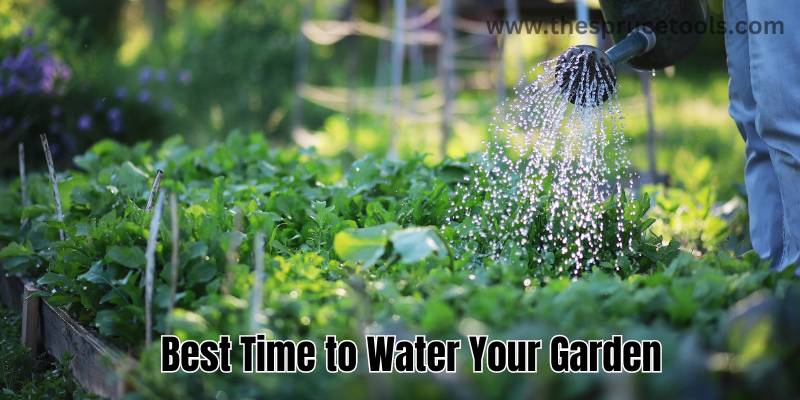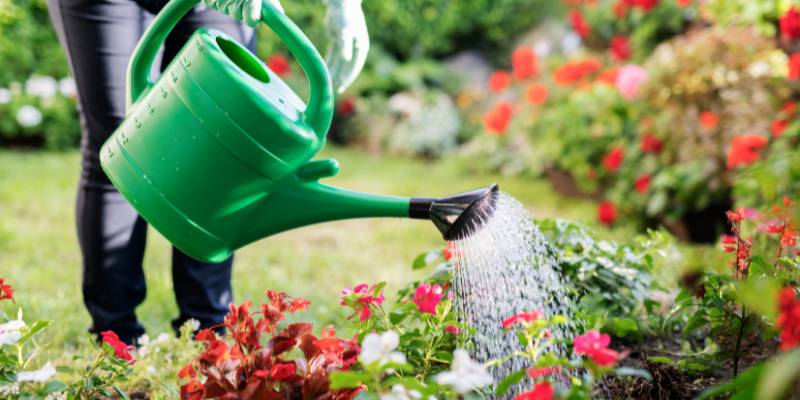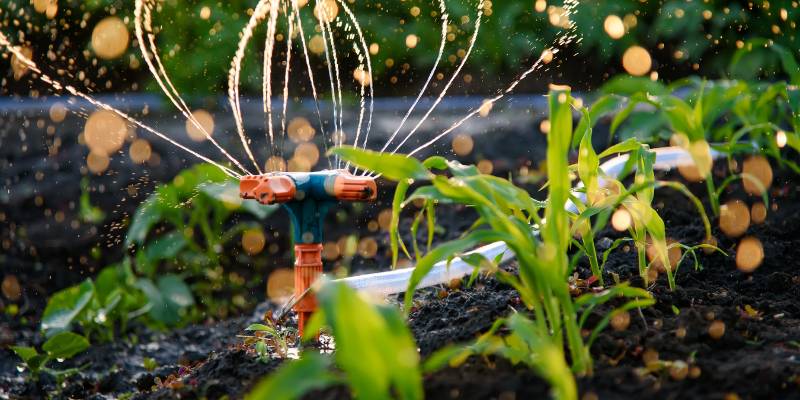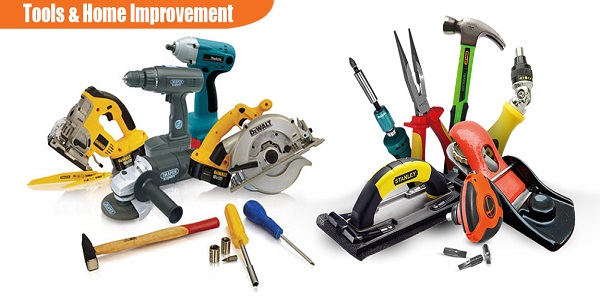Watering is a crucial part of garden care, but knowing when to water can be tricky. The right timing can make a big difference in how well your plants grow and how healthy they stay. In this guide, we’ll explore the best times to water your garden and why timing matters so much.

Why Timing Matters in Garden Watering
Before we dive into the best times to water, it’s important to understand why timing is so crucial. Plants use water in different ways throughout the day, and the time you water can affect how well they absorb and use that water.
Plant Hydration Basics
Plants take in water through their roots and use it for many important jobs. They need water to make food through photosynthesis, move nutrients around, and keep their cells plump and firm. During the day, plants lose water through tiny holes in their leaves called stomata. This process, called transpiration, helps plants stay cool and pull nutrients up from their roots.
How Watering Time Affects Plants
The time of day you water can impact how much water plants can actually use. It also affects things like disease risk and water waste. Let’s look at how watering at different times of day affects your garden:
Morning Watering
Watering in the morning gives plants a good drink before the heat of the day. The water has time to soak into the soil and reach the roots before the sun gets too strong. Any water that splashes on leaves has time to dry, which helps prevent fungal diseases. Morning watering also means less water is lost to evaporation.
Midday Watering
Watering in the middle of the day is usually not the best choice. The hot sun can cause water to evaporate quickly, meaning less reaches the plant roots. Water droplets on leaves can act like tiny magnifying glasses, potentially burning the leaves. Plants also don’t absorb water as well when they’re dealing with the stress of midday heat.
Evening Watering
Watering in the evening can be okay in some cases, but it comes with risks. Plants have time to drink up the water before the next day’s heat, which is good. However, leaves that stay wet overnight are more likely to develop fungal diseases. The cooler evening temperatures also mean water sits in the soil longer, which can lead to root problems if done too often.
Best Times to Water Your Garden
Now that we understand why timing matters, let’s look at the best times to water your garden in more detail.

Morning Watering: The Gold Standard
Watering in the morning is often the best choice for most gardens. Here’s why:
Efficient Water Use: Morning temperatures are cooler, so less water is lost to evaporation. This means more water reaches plant roots where it’s needed.
Disease Prevention: Leaves have all day to dry in the sun, reducing the risk of fungal diseases that thrive in damp conditions.
Plant Preparedness: A morning drink helps plants get ready for the heat of the day. They can take up water and be fully hydrated to handle hot temperatures.
Root Health: Morning watering encourages roots to grow deeper as they follow the water soaking into the soil.
How to Water in the Morning
The ideal time is between 5 AM and 9 AM. Use a gentle spray or soaker hose to avoid damaging plants. Water at the base of plants to keep leaves dry. Give plants a good, deep watering rather than a light sprinkle.
Evening Watering: Sometimes Okay
While morning is best, evening watering can work in certain situations:
When It’s Appropriate:
Very Hot, Dry Climates: In these areas, evening watering might be needed to help plants recover from intense daytime heat.
When Morning Watering Isn’t Possible: If your schedule doesn’t allow for morning watering, evening is better than midday.
For Container Plants: Pots dry out faster and might need an evening top-up in hot weather.
Potential Issues with Evening Watering:
Increased Disease Risk: Wet leaves overnight can lead to fungal growth.
Pest Activity: Some pests like slugs and snails are more active in damp, evening conditions.
Slower Water Uptake: Plants generally take up water more slowly at night.
How to Water in the Evening
If you need to water in the evening, do it early enough that leaves can dry before nightfall. Aim for before sunset. Water at the base of plants to keep leaves dry. Avoid overhead sprinklers in the evening.
Midday Watering: For Emergencies Only
Watering in the middle of the day is usually not recommended, but there are a few situations where it might be necessary:
When Midday Watering Might Be Needed:
Extreme Heat Waves: If plants are wilting severely, a midday drink might be needed to help them survive until evening.
Just-Planted Seeds or Seedlings: These might need frequent watering to stay moist, even midday.
Dry, Windy Conditions: Strong winds can dry out plants quickly, sometimes necessitating midday watering.
Risks of Midday Watering:
High Water Waste: Much of the water can evaporate before plants can use it.
Potential Leaf Damage: Water droplets can focus sunlight and burn leaves.
Less Efficient Absorption: Plants under heat stress don’t take up water as well.
How to Water Midday if Necessary
If you must water during the heat of the day, water at the base of plants to avoid wetting leaves. Use methods that target the soil directly, like drip irrigation or soaker hoses. A light misting of leaves can help cool plants without risking leaf burn.
Seasonal Considerations for Watering Times
The best time to water your garden can shift as the seasons change. Here’s how to adjust your watering schedule throughout the year:
Spring Watering
In spring, the weather is often cool and sometimes rainy. However, new plants and seeds need consistent moisture to get started.
Best Time: Early morning, between 6 AM and 9 AM.
Why: Allows plants to take up water before the day warms up, but gives leaves time to dry, preventing disease.
Tips:
- Water newly planted seeds and seedlings whenever the soil surface dries out, regardless of time.
- For established plants, water deeply but less often to encourage deep root growth.
Summer Watering
Summer often brings the highest watering demands due to heat and longer days.
Best Time: Very early morning, between 4 AM and 7 AM.
Why: Helps plants prepare for intense heat and sunlight. Reduces water loss from evaporation.
Tips:
- In extreme heat, a light misting in the late afternoon can help cool plants.
- Use mulch to help soil retain moisture longer.
- Consider installing a drip irrigation system with a timer for consistent early morning watering.
Read Also: When is the Best Time to Water Grass in Hot Weather?
Fall Watering
As temperatures cool and days shorten, watering needs generally decrease.
Best Time: Mid-morning, between 8 AM and 10 AM.
Why: Allows soil to warm up a bit first, encouraging root growth. Still gives leaves time to dry before night.
Tips:
- Reduce watering frequency as temperatures cool.
- Continue to water newly planted fall crops and trees until the ground freezes.
Winter Watering
In many areas, winter means most plants are dormant and need little to no extra water.
Best Time: Late morning, between 10 AM and 12 PM.
Why: Allows ice to melt and soil to thaw before watering.
Tips:
- Only water during dry spells if ground isn’t frozen.
- Focus on watering evergreens, which can suffer from winter dehydration.
- In warm winter areas, continue regular morning watering for active plants.
Remember, these are general guidelines. Always adjust based on your local climate, recent weather patterns, and the specific needs of your plants.
Common Timing Mistakes to Avoid
Even experienced gardeners can make mistakes with watering timing. Here are some common errors to watch out for:
Sticking to a Rigid Schedule
Problem: Watering at the same time every day, regardless of weather conditions.
Why It’s Bad: This can lead to overwatering during rainy periods or underwatering during hot, dry spells.
Solution: Check soil moisture and weather forecasts regularly. Adjust your watering timing and frequency based on current conditions.
Watering Too Late in the Evening
Problem: Watering close to or after sunset.
Why It’s Bad: Leaves stay wet overnight, increasing the risk of fungal diseases.
Solution: If you must water in the evening, do it early enough for leaves to dry before nightfall.
Relying on Daytime Watering in Hot Weather
Problem: Watering in the heat of the day during summer.
Why It’s Bad: Much of the water evaporates before plants can use it. Can also lead to leaf burn.
Solution: Wake up early to water, or use automated systems set for early morning watering.
Not Adjusting for Seasonal Changes
Problem: Using the same watering time year-round.
Why It’s Bad: Plant water needs and optimal watering times change with the seasons.
Solution: Adjust your watering schedule as the seasons change, as outlined in the previous section.
Watering Too Quickly
Problem: Giving plants a quick sprinkle whenever you think of it, regardless of time.
Why It’s Bad: Encourages shallow root growth and doesn’t provide enough water.
Solution: Water deeply but less often, and stick to optimal times of day.
Read About: How Long to Water Garden with Sprinkler?
Ignoring Plant-Specific Needs
Problem: Watering all plants at the same time and in the same way.
Why It’s Bad: Different plants have different water needs and preferred watering times.
Solution: Group plants with similar water needs together. Research the best watering practices for specific plants in your garden.
By avoiding these common mistakes, you’ll be well on your way to a healthier, more vibrant garden.
Frequently Asked Questions About Garden Watering Times
Is it ever okay to water my garden at night?
It’s generally best to avoid nighttime watering. Water sitting on leaves overnight can lead to fungal diseases. If you must water at night, water at the base of plants and avoid getting leaves wet.
How do I water in the morning if I leave for work early?
Consider installing an automated irrigation system with a timer. Alternatively, you could water in the evening, but do it early enough for leaves to dry before nightfall.
Does the best watering time change for indoor plants?
Indoor plants are less affected by outdoor conditions, so the time of day matters less. However, morning or early afternoon watering is still ideal to allow excess water to evaporate during the day.
Should I water at different times for different types of plants?
While morning is generally best for most plants, some have specific needs. Succulents, for example, prefer less frequent watering and can benefit from afternoon watering to avoid sitting in wet soil overnight.
How do I know if I’m watering at the right time?
Look at your plants’ response. If they look perky and healthy, you’re probably watering at a good time. If you see wilting in the afternoon or fungal issues, you might need to adjust your timing.
Is it better to water before or after fertilizing?
It’s usually best to water before fertilizing, and then lightly water again after. This helps the fertilizer soak in without washing it away. Do this in the morning for best results.
How does watering time affect water conservation?
Watering early in the morning or late in the evening reduces water loss through evaporation, making your watering more efficient and conserving water.
Conclusion: Mastering the Timing of Garden Watering

Understanding the best times to water your garden is a key part of successful plant care. Here’s a quick recap of the main points:
- Morning is generally the best time to water for most plants and situations.
- If you can’t water in the morning, early evening is the next best option.
- Avoid midday watering unless absolutely necessary.
- Adjust your watering times as seasons change.
- Always consider your specific climate, plants, and recent weather when deciding when to water.
Remember, these guidelines are a starting point. The best watering schedule for your garden will depend on your unique conditions. Pay attention to how your plants respond and be willing to adjust your timing as needed.
By focusing on when you water, not just how much, you’re taking a big step towards a healthier, more vibrant garden. Your plants will reward your attention to timing with stronger growth, more flowers, and better resistance to pests and diseases.
Happy gardening, and may your timing always be perfect!


